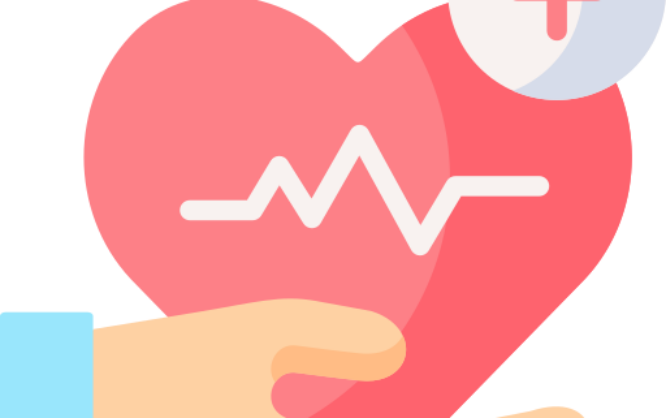How AI-Enabled Surveillance Helps Track Public Health

Artificial Intelligence (AI) is an addition to human intelligence, based on learning algorithms and neural networks as strategies for data selection, analysis and predictions.
It’s mostly used for replacement of manual work and as an alternative to finding new ways of solving issues. Due to the focus on computer science, AI has found its purpose in every field and industry. So, experts and businesses have been trying to use AI in places where processes depend on its application.
One of the industries where AI systems have been majorly employed is health care, aiming at providing a better quality of life to individuals and extending the lifespan of humanity. That’s the reason why many hospitals are relying on machine intelligence since it can be a replacement for performing specific tasks that would otherwise seek extensive manual work.
AI and Public Health
Through the implementation of AI technology, health care professionals are doing their jobs with more precision, especially when it comes to surgeries. In such cases, robots play a vital role as a helping hand to human doctors. However, despite the immense application of AI into the healthcare system, a particular AI program has also been deployed for disease control and prevention. Its role is to preserve public health.
Nowadays, we’re all concerned about the public health that has been put at risk due to the novel coronavirus. Also, about its effect on our lives, taking our freedom away. Even though AI development has helped the healthcare industry in the fight against the latest pandemic, it only refers to finding ways to cure and handle already infected patients.
So, the next imposed question is: How can strong AI help us take care of public health in addition to the techniques that we have been incorporating now?
And, the answer is - by relying on the use of AI surveillance and contact tracking systems.
Even though public health has always depended on AI surveillance, now in the current coronavirus pandemic, it has found more application than usual. For that purpose, in this article, we’ll go over the current AI-enabled surveillance systems that are used to handle the pandemic we’re all combating against - COVID-19. What is more, the AI practices can be further applied for any upcoming health programs to deal with new infectious disease outbreaks.
What Kind of Surveillance Practices Are Involved?
Even the cholera outbreak in the past has been controlled, thanks to the epidemiologic data gathered manually by experts. Over the years, the process of gathering the information and the techniques have changed and upgraded. However, the main goal remained the same - to track disease outbreaks and preserve public health.
Public health surveillance includes the process of detecting, tracking, as well as responding to infections that can have a devastating effect on the overall population. The monitoring can be local or global, depending on the situation. Even though much of the surveillance methods that are available nowadays include time series analysis along with the knowledge of public health professionals, a significant shift is expected due to the availability of new information sources.
Nowadays, most of the surveillance data come from sources such as data streams from mobile phones, apps, electronic medical records, location-related devices, as well as user-generated content, and Internet search queries.
How Are Different Countries Dealing with Infection Outbreaks?
The employment of AI-enabled surveillance systems has been evident even from the outbreak of COVID-19 in Wuhan, China. It included surveillance tools to monitor the movement and temperature of individuals and also tracking of travel data through the flights and mobile phones.
China went that far by accessing the credit card data of individuals and making this information available for hospitals, just so they are aware of their patients’ movement or travels. The AI research and core digital changes have created a new way of functioning for residents of East Asian countries. Sometimes these countries went that far by revealing the names of the infected people, just so the chain of reinfections was cut in the very core.
While it’s evident that East Asian countries have included surveillance in every possible way, Western countries have been more reserved in “disrupting” the privacy of individuals. However, the results of the massive AI-enabled monitoring have shown results, since China has put an end to the pandemic, compared to the democratic approach in the European countries and the US where the number of cases is still on the rise. So, is there an option to use AI-surveillance without sacrificing privacy?
The truth is that even though European and American citizens might feel that this is intrusion and violation of their human rights, the examples from the countries that have deployed strict AI surveillance measures show a success.
Some of the regulations that most countries have conformed to are the stay at home recommendations and avoidance of social gathering. The measurements by the centers for disease control include social distancing, social isolation and quarantine that can be monitored by apps tracking the location of smartphones.
What is the Outcome?
We believe that through enhanced surveillance, and the AI features - deep learning and computer vision, countries will eventually keep a step ahead of the invisible virus. Besides, it’s a fact that even after COVID-19, there will be heightened surveillance. Moreover, it’s up to the government and people to use it in their favour.
Even though some of us might have doubts concerning AI, we should all welcome the benefits it offers. Why not consider AI-enabled surveillance as a tool that can keep us all safe, rather than something that will affect our privacy?
In the end, the future of technology and AI isn’t a science fiction project, but something that we can all see right in front of our eyes and take advantage of.

I believe the subject material here is rattling wonderful , appreciate it for your efforts.